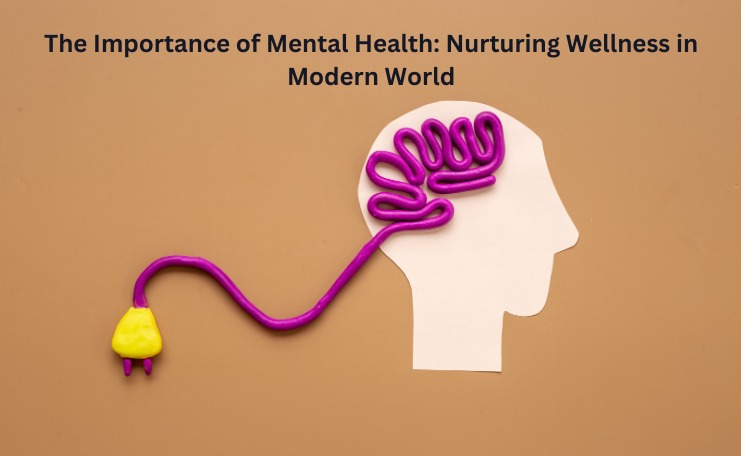The Importance of Mental Health: Nurturing Wellness in Modern World

The concept of Mental Health encompasses our emotional, psychological, and social well-being, influencing how we think, feel, and act. Understanding what mental health is and prioritizing its care is crucial for leading a fulfilling and balanced life. In this blog, we will explore What is Mental Health and how nurturing wellness in this area is essential for navigating the complexities of the modern world.
What Is Mental Health?
“Mental health” describes a person’s whole state of psychological wellness. It includes all facets of our existence, such as our feelings, ideas, and actions. A person with strong mental health can manage life’s stressors, work efficiently, and give back to their community. Conversely, inadequate mental health may result in many difficulties, such as anxiety, depression, and other mental health conditions that can greatly affect day-to-day functioning.
Importance of Mental Health
Overall Well-being: Mental health is essential for overall well-being. It affects our capacity to carry out everyday tasks and is linked to physical health. Prioritising our mental health makes it easier to control stress, develop resilience, and have a good attitude toward life.
Relationships and Social Connections: Mental health plays a crucial role in our relationships and social connections. We can build and sustain healthy relationships, speak clearly, and empathise with others in good mental health. It also enables us to handle difficulties and disagreements while interacting with other people.
Productivity and Performance: In the job, classroom, and other spheres of life, a sound mind is a must for both. We can better focus, pick up new abilities, and adjust to changes when we are mentally well. Consequently, we may experience more achievement and satisfaction in our pursuits.
Physical Health: There is a tight relationship between mental and physical health. Headaches, stomach troubles, and persistent pain are examples of physical health conditions that may be exacerbated by poor mental health. On the other hand, keeping our mental health in check may benefit our physical health and improve our overall health.
Nurturing Mental Health in the Modern World
Self-Care Activities: Taking care of oneself with regular exercise, enough sleep, and a balanced diet may greatly influence mental health. Investing time in enjoyable and soothing pursuits, like hobbies or mindfulness exercises, may also enhance general well-being.
Seeking Assistance: It’s important to ask for assistance when required. This might include reaching out to loved ones, joining support groups, or getting expert assistance from a therapist or counsellor. Asking for help is a show of courage and may lead to helpful resources for dealing with mental health issues.
Establishing Boundaries: Maintaining mental health depends on establishing boundaries in various spheres of life, including jobs, relationships, and social activities. Burnout and overload may be avoided by developing the ability to say no when necessary and prioritising things that fit your beliefs and objectives.
Reducing Stigma: Creating a supportive atmosphere for those grappling with mental health concerns requires addressing the stigma associated with mental health. By encouraging candid discussions and comprehension, we can establish a more accepting and caring community where people are at ease asking for assistance when needed.
The Impact of Modern Lifestyles on Mental Health
Certain difficulties in the contemporary environment might affect mental health. Anxiety, despair, and burnout may be caused by several things, including increased screen time, social media usage, stress at work, and the fast-paced aspect of contemporary life. Comprehending how these elements impact mental health is essential to formulating approaches to lessen their consequences and enhance general welfare in the contemporary period.
Strategies for Promoting Mental Health
In the current environment, promoting mental health requires a proactive strategy emphasising prevention and overall well-being. Better mental health may be achieved via various techniques, including regular physical exercise, practising mindfulness and meditation, building social networks, and getting professional assistance when necessary. Furthermore, fostering an atmosphere that prioritises mental well-being and promotes candid discussions about mental health may aid in lowering stigma and fostering a compassionate and caring culture. By putting mental health first and putting these tactics into practice, people may face the difficulties of the contemporary world with optimism and resilience.
Conclusion
Mental health is an essential component of total well-being that affects all areas of our lives. In the current environment, promoting mental health necessitates taking proactive steps to prioritise self-care, get help when required, establish boundaries, and lessen stigma. We may live happier, healthier, and more fulfilled lives and contribute to a culture that values and supports mental wellness by taking action to care for our mental health.





